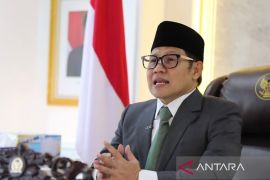"We will repatriate all of our workers and we will do it continually. This repatriation effort has been carried out since last year. We already knew a crisis was coming, so we stopped sending workers a year ago and started repatriating," Muhaimin said here on Tuesday.
One of the difficulties encountered by the government in its efforts is the large number of unidentified Indonesian workers, who are not registered in the Indonesian embassy`s database.
"Most of the workers departed from Indonesia to the United Arab Emirates, but ended up in Syria and other surrounding countries because of the irresponsible acts of the Indonesian migrant worker recruitment and placement agency," Muhaimin explained.
Nevertheless, the government will continue to repatriate all Indonesian citizens from Syria, especially those who are trapped in conflict-prone areas.
Muhaimin said the ministry would enforce repatriation on workers who were unwilling to leave Syria, because there was no guarantee of their safety in the country.
The ministry has identified five areas in Syria as conflict-prone zones - Homs, Hama, Idleb, Dar`a and Rif Dimasq - where most of the Indonesian workers are employed.
There are 405 Indonesians employed in Homs, 86 in Hama, 17 in Idleb, 11 in Dar`a, and 426 in Rif Dimasq. Most of them are employed as domestic helpers.
The ministry is also paying attention to other conflict-prone areas in Syria, such as Damascus, Aleppo, Lattakia, Tartus, Raqqah, Deir Ez Zour, Sweida, Al Hasakah, and Quneitra.
According to Indonesian government data, the numbers of workers evacuated from Syria until June 10, 2012, reached 202, while 70 among them were repatriated.
On August 9, 2011, the Indonesia government issued a moratorium on the sending of migrant workers, particularly domestic helpers, to Syria, citing lack of protection as the main reason. (*)
Editor: Kunto Wibisono
Copyright © ANTARA 2012











